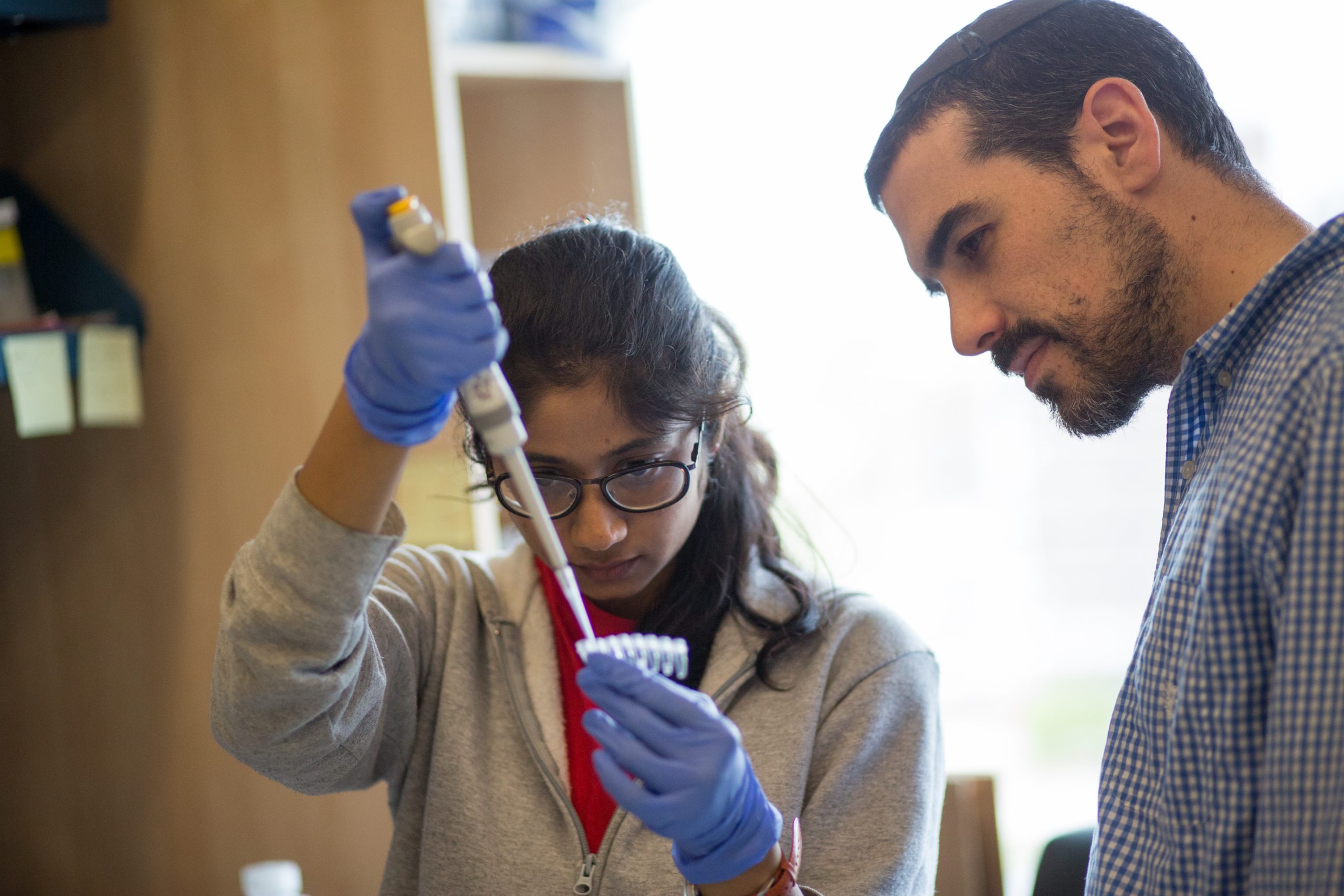
Master’s of Science Program
Entrance Assessment
Prospective MS Program students will be assessed according to their undergraduate record as well as their scores on the Graduate Record Exams (GREs). Admission assessment may also include an interview with the Admission Committee, formed by the Program Director and key faculty members. The Admission Committee will determine the student’s baseline competency for the program, and will assign courses to be followed in the first year of the program. The Admission Committee will also assign to each student an Advisor, who has to be confirmed or changed by end of first semester.
It is anticipated that students will enter the program from a variety of backgrounds with Bachelor’s or Master’s degrees in biology, chemistry, computer science, engineering, mathematics, or physics.
Learning Goals
- Students will acquire a productive understanding of the five scientific fields (Biology, Chemistry, Computer Science, Mathematics, Physics) that comprise CCIB, sufficient to engage in interdisciplinary research.
- Students (research) will develop sufficient skills in a specific area of computational biology to be able to perform research in that area of study.
- Students (non-research) will be able to gain sufficient skills to communicate and deliver information to scientists from different disciplines, as specified in Goal 1.
- Students will experience a research activity or study in a specific area of computational and integrative biology.
Degree Requirements
On the basis of the entrance assessment, the Admission Committee will determine a course of study for the individual to take in the two years of graduate studies. The MS degree will require a minimum of 30 credits from Essentials and Elective Courses. While this page has a formal description, students are also encouraged to consult the Program Handbook for more practical information on how to fulfill these requirements.
CIB MS Degree Tracks
Thesis option: This track requires 30 graduate-level course credits as well as the completion of a research thesis with a faculty member of CCIB. An oral proposal is required within 1 year after the student has joined the program in order to register for the Masters Project class and continue the thesis. Students must also complete a comprehensive examination (thesis defense) by the end of the last semester.
Non-thesis option: This track also requires 30 graduate-level course credits. In addition, students are required to write a comprehensive review paper under the guidance of a faculty member of CCIB. The mentor selection is to be coordinated with the Graduate Program Director and be done before the beginning of the last fall semester. The review writing process is done during the last two semesters. Students register for Independent Study Course (3 credits) in the fall and spring semesters.
Required Courses
All CIB Students will receive a personalized curriculum with required courses the summer before joining the program. This list will usually include the following for MS students:
- 56:121:601 Center for Computational and Integrative Biology (CCIB) Seminar (at least 4 credits)
- 56:121:620 Lab Practices
- 56:121:701 Master’s Project (6 credits) – Thesis Option Only
- 56:121:710 Independent Study (total of 6 credits) 3rd and 4th semester – Non-thesis Option only
Qualifying Exam (Thesis-track only)
By the end of their first year in the program, students in the thesis track must pass an oral examination about their proposed research to their Advisor Committee. If this exam is not passed, the student can complete the non-thesis track of the MS. Please see the Program Handbook for more information on requirements for committees for MS students and the procedure for the MS qualifying exam.
Comprehensive Exam
At the end of the program, the student’s Advisory Committee will administer a comprehensive exam which will include an oral defense of the Master’s project as well as oral and/or written responses to questions testing the breadth of knowledge in the area of study.
For further queries please consult the Program Handbook or visit Frequently Asked Questions for Prospective Students. If you still have questions, please contact us.
